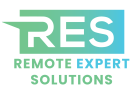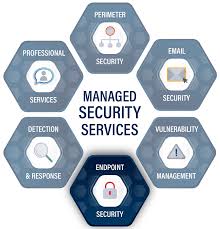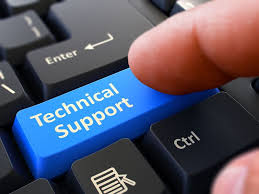In today’s digital-first business environment, choosing between In-House vs Outsourced IT support is a strategic decision that impacts cost, expertise, scalability, and security. Whether you’re a fast-growing startup or an established enterprise, selecting the right IT model aligns your infrastructure with your business goals. At Remote Expert Solutions (RES), we guide U.S. companies through this critical choice—helping them decide whether internal teams, Managed IT Services Providers (MSPs), or a hybrid model best supports their needs.
In‑House vs Outsourced IT: What Each Model Offers
What an In‑House IT Team Delivers
An In‑House vs Outsourced IT comparison begins with internal staff. In-house IT specialists are embedded in your company culture and base operations on daily familiarity. They handle everything from data security and infrastructure maintenance to immediate troubleshooting and user support. Their close alignment with your business flow can deliver faster internal response times and customized solutions.
How Outsourced IT Support Compares
On the flip side, outsourcing provides In-House vs Outsourced IT advantages like access to global talent, round-the-clock support, and flexible pricing. Managed service providers (MSPs) manage services like cloud hosting, cybersecurity, automation, and helpdesk support under a predictable subscription. Outsourced IT reduces capital expense and delivers expert insights without the need to hire full‑time staff.
Cost Efficiency in In‑House vs Outsourced IT
When evaluating In‑House vs Outsourced IT, cost is a major differentiator. Maintaining internal IT means paying salaries, benefits, ongoing training, and infrastructure expenses like workstations and software licenses.
Alternatively, outsourced IT converts these costs into predictable monthly fees. RES’s model eliminates overhead, allowing small and mid-sized businesses to access enterprise-grade IT support affordably.
Expertise and Flexibility: Weighing In‑House vs Outsourced IT
Specialization in In‑House vs Outsourced IT
Internal IT teams are knowledgeable about company systems but may not always stay updated on emerging technologies. By contrast, outsourcing partners bring specialized expertise—such as cybersecurity, compliance, and cloud integration—constantly refreshed across multiple clients and industries.
Adaptability and Growth
The In‑House vs Outsourced IT model also impacts scalability. Hiring internal staff for new projects or expansion requires time. Outsourced IT services, however, rapidly scale based on your needs—supporting growth without delay.
Control vs Agility in In‑House vs Outsourced IT
Direct Oversight with In‑House IT
Working with an internal team offers total visibility and direct control over processes and infrastructure. This intimate knowledge can enable faster internal changes and tailored solutions based on operational knowledge.
Agility of Outsourced IT Solutions
Outsourced providers offer flexibility. While they invest time onboarding your systems, experienced MSPs offer high-quality service defined by Service Level Agreements (SLAs), 24/7 monitoring, and remote fixes—making the process seamless and responsive.
Security and Compliance in In‑House vs Outsourced IT
Security Considerations in In‑House vs Outsourced IT
Cybersecurity threats and compliance obligations continue to rise. In-house staff may lack resources or scale to manage sophisticated threats or regulatory requirements like HIPAA or GDPR.
Outsourced IT providers typically offer robust security stacks including endpoint protection, encryption, backup, compliance audits, and ongoing vulnerability monitoring—making them a strong option for regulated industries.
In‑House vs Outsourced IT: Response Time and Support Structure
An internal support team typically offers fast, onsite issue resolution, which can minimize downtime. Outsourced providers, however, combine proactive monitoring with remote tools to catch and resolve issues before they escalate. This proactive model often delivers uptime and reliability even beyond typical business hours.
Hybrid Model: A Balanced Approach to In‑House vs Outsourced IT
For many businesses, a hybrid strategy—mixing internal leadership with outsourced execution—combines the best of In‑House vs Outsourced IT models. Strategic decisions and confidential systems remain internal, while daily operations, monitoring, and support are delegated to MSPs. This enables businesses to enjoy control, cost-efficiency, and expert support simultaneously.
FAQs – In‑House vs Outsourced IT Explained
Which is more cost-effective—In‑House vs Outsourced IT?
Outsourced IT often proves more economical for SMBs because it transforms capital expense into predictable operating costs and eliminates hiring and infrastructure overhead.
Can we ensure data security with outsourced IT?
Yes. Reputable MSPs like RES employ enterprise-grade security measures, compliance frameworks, and monitoring tools to keep your data safe and aligned with regulatory requirements.
Is faster support guaranteed by an internal team in the In‑House vs Outsourced IT debate?
In-house support offers full-time onsite expertise, while outsourced providers deliver 24/7 availability and proactive issue detection through remote tools—often resolving issues before they impact users.
Who should use a hybrid model in the In‑House vs Outsourced IT context?
Organizations that want centralized control over critical systems but also require specialized support, flexibility, and scalability from external providers benefit most from the hybrid model.
How do we decide between In‑House vs Outsourced IT?
Consider your future growth, data sensitivity, budget constraints, compliance needs, and desired control level. RES can help assess your environment and recommend the optimal strategy.
Final Thoughts: Align Strategy with Your IT Needs
The choice between In-House vs Outsourced IT should align with your company’s vision and operational realities. Internal teams offer familiarity and control; outsourced IT delivers expert skills, reduced overhead, and scalability. Growing businesses often find a hybrid approach delivers the best of both worlds—maintaining strategic control while gaining flexible, expert support.
At Remote Expert Solutions, we help businesses implement the optimal IT services model guided by their needs, objectives, and growth roadmap. Whether you choose in‑house, outsourced, or a blend, your IT infrastructure should support—not hinder—your success.
Contact Us
Admin@remotexpertsolutions.com






